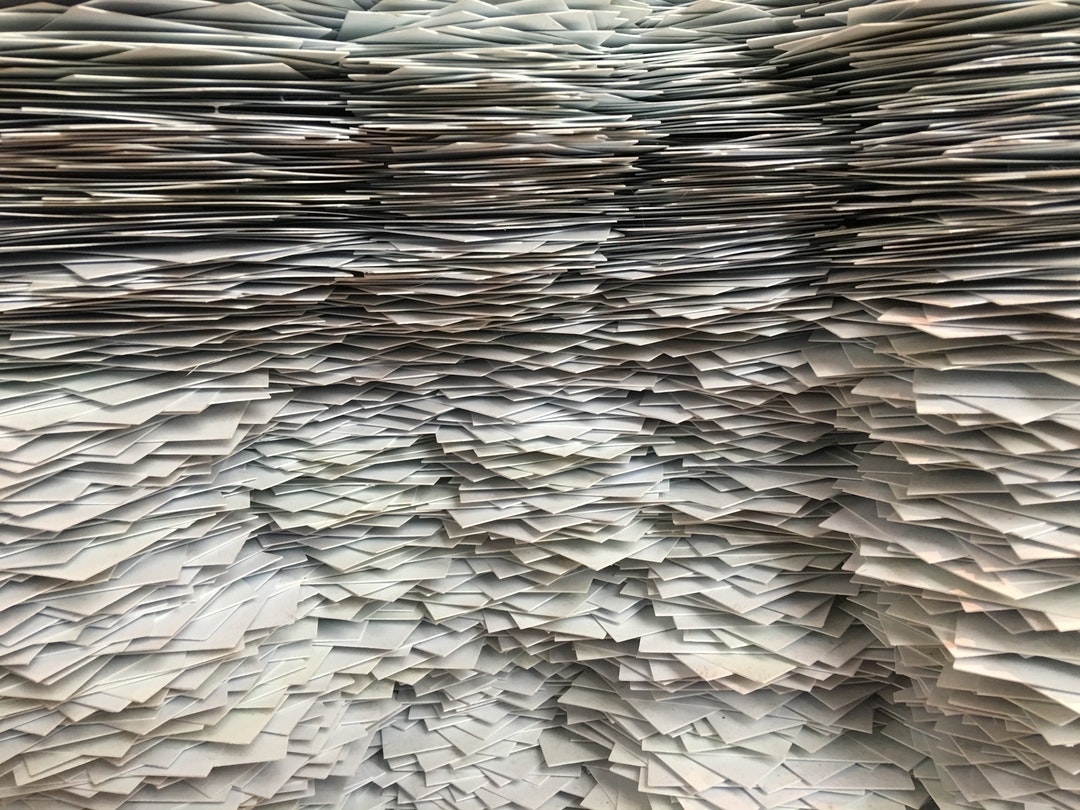5th Nov 2018
How to Dispose of Confidential Documents: Everything You Need to Know

Confidential documents are those which are unsuitable for the general public, or those not directly related to the case, to have access to.
Depending on your line of work, you may have a variety of confidential documents on hand. They may be personal information about a client your firm has represented, information about a person's credit score or medical files.
According to HIPAA, or the Health Insurance Portability and Accountability Act of 1996, you must destroy confidential documents after a certain period of time.
HIPAA is explicit about how to do this. But what if you work in a different line of business?
In this article, we'll discuss everything you need to know about how to dispose of confidential documents.
What are Confidential Documents?
Confidential documents are any documentation that has information about a customer or client. It can include information about their case, their job, financial information or health information.
If you work in a healthcare field, you are required to remain patient confidentiality. This means that you cannot disclose information about them to anyone who is not authorized.
If you work in another line of work, confidential documents must be kept so in order to protect not only the privacy but information pertaining to financial documents.
As such, if you run a retail store, for example, the information you have about customers is confidential. You may have customers' addresses or information pertaining to their bank account. These are, for all intents and purposes, confidential.
While most employees can be trusted not to access them whenever they feel like it, you should still destroy confidential documents at regular increments.
Keeping Documents Confidential
Before you have destroyed any potential confidential documents, you must keep them off-limits to others in your office. It is a wise idea to have a filing cabinet with a lock on it. Or, if you have a large number of confidential documents, your office itself should have a lock to ensure no one who is not authorized can grab them and read them.
Make sure documents are kept away from potentially prying eyes, even before you take steps to destroy them.
Why Does My Company Have to Destroy Confidential Documents?
In some cases, it is mandated by law. If you work in an area where this is the case, you will be aware of this.
In other cases, it is to prevent identity theft. It can also prevent the theft of confidential information from your business. For example, if documents are not destroyed in a timely manner, you open yourself up to the public finding out about product releases before they're released.
You may have heard about Apple's issue with careless employees leaving iPhone prototypes or plans lying around. This has lead to the information being leaked because the documentation was not destroyed, or the employee was not proactive enough to keep the document confidential.
In other cases, as stated above, this can lead to identity theft. You may think this is only the case if you retain financial customer information. However, that isn't completely true.
Instead, those bent on stealing identities can do so through minimal amounts of information. For example, hospitals and other healthcare offices who do not destroy patient information may find their patients' identities for sale on the dark web. Often, people will even sell dead patient data in order to use their insurance or reroute the medication they were on to their own home.
Dead people obviously can't keep track of changes to their accounts, which makes them the perfect target.
As such, destroying documents is incredibly important, no matter your field.
How to Dispose of Confidential Documents: Virtual Documents
There are many ways you can destroy confidential documents. In this article, we'll go over a few of them.
Firstly, you will need to destroy all digital information that contains anything confidential. This information is perhaps the most vulnerable. If you have a strong in-house IT department, they can typically help you do this at regular intervals. They may even ask you to do so yourself every few months.
If you do not have an in-house IT department, hiring one to help you "clean out" your digital storage is a great idea. You can be sure nothing will get leaked. You can also be sure that your confidential data will stay confidential. A good IT department will know how to encrypt data so that no one else can get into it, not even seasoned hackers.
According to HIPAA, if you work in a medical office, data must be purged at regular intervals. This goes for clients who have not come into your office for a while or those who have passed away.
Shredding Your Documents
Shredding confidential documents can be an appropriate and effective way to destroy hard copies. This is effective if you're doing office "spring cleaning" and don't have to shred a huge amount of documents.
Using a shredder is appropriate if you can render any sensitive information unreadable. The shredder must also make it so that no one can reconstruct the papers and read the sensitive information. As such, many people who do operate shredders will mix up the shredded paper to be sure no one can put them back together.
Shredding is a HIPAA approved way to dispose of your documents. It is also environmentally friendly, as most shredded items can be recycled much more easily than non-shredded documents.
Once your documents have been shredded, they are effectively pulverized.
Cutting Up the Documents
If you only have a few documents or one file to destroy, cutting up the documents can be effective. You'll need some heavy duty scissors and some time to do so. As such, most people don't cut up documents unless it's a small amount.
If you decide to destroy a confidential document by cutting it up, you must make sure that no confidential information is readable. You need to cut through anything like the name of the client, diagnoses, information about their cases, social security number or bank information.
Like with shredding, in order to qualify as having been destroyed, you must not be able to reconstruct them. An effective way of disposing documents after cutting them is to place them in several different recycling receptacles.
Once put in the recycling, or thrown away, the cut documents are also rendered destroyed.
Burning Documents
Incinerating documents may also be an effective way to destroy them, though it isn't always practical. However, this ensures that your documents cannot be reconstructed and ever read again.
While burning confidential documents is incredibly effective, it can prove to be a challenge due to city laws. Most cities will not allow you to have open fires, which are sometimes necessary to burn large numbers of documents.
If you intend to burn more than a few pieces of paper, you'll need a fire or incinerator large enough to accommodate that. It can take several hours to do so in order to ensure that all papers are effectively burned to ash. You will also need to wait and allow papers to burn before feeding another one. This is to ensure that all of the papers are pulverized effectively.
This method is also approved by HIPAA, though it isn't always completely practical.
Soaking Paper
Some companies find that soaking paper can be an effective method for destroying confidential information. You will need to soak the files for a few hours to a few days to render them completely destroyed. In order for them to meet the criteria of destroyed, they must be unreadable.
While this method does make your documents unreadable, it doesn't make it as easy to recycle as with other methods. As such, most people end up skipping this method, as they will need to find a way to dispose of potentially thousands of pieces of wet paper.
Hiring a Company
The answer to the question of how to dispose of confidential documents is varied, depending on your company's policies and the volume of the files.
One solution is to hire an outside company to do it for you.
Some people may feel uncomfortable with hiring an external company. This is especially the case if their confidential information is extremely confidential or could have a last effect if leaked.
However, there are many companies available that can help your business get rid of any documents necessary. An ethical company will destroy documents to the proper standard without leaking any information.
Using an outside company can save you and your employees time and effort they could be using for other projects or working with clients.
If you think your company is interested in finding a better way to organize their documents, contact us. We can discuss a solution for you today, including readying documents for destruction.




